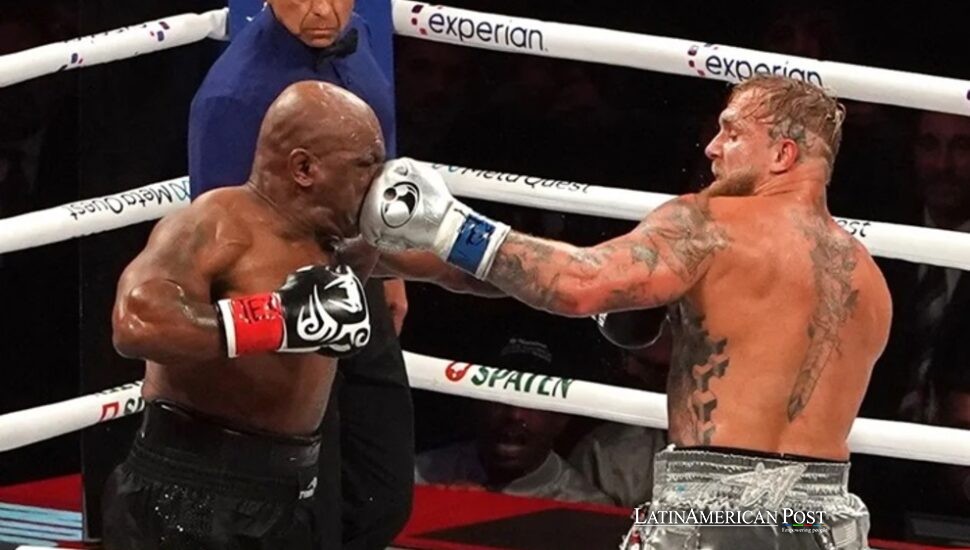Latin America’s Boxing Heritage Threatened by Influencer Spectacles

The rise of Internet personalities as boxing headliners has triggered alarm among Latin American aficionados. Former champion Julio César Chávez Jr. points to mismatched fights and social media clout as the latest threats to a cherished tradition built on grit and glory.
A Legacy Built on Dedication and Identity
Boxing is important in Latin American sports. The region has many stories of resolve plus bravery. Roberto Durán, Carlos Monzón along with Julio César Chávez Sr. are examples. They became national symbols of toughness. Each win became part of common knowledge. Beyond collecting belts, these warriors carried the weight of their countries’ pride.
However, this revered legacy is coming under siege from an unsettling trend: influencer boxing. Chávez Jr., once a middleweight world champion, warns that a box office mentality—rather than a genuine test of skills—now defines too many bouts. Talking with reporters, he pointed to the likes of “YouTuber” Jake Paul as prime examples of how hype and social media status can overshadow years of training. According to Chávez Jr., the best fighters often avoid one another, leaving the stage open for content creators to dominate pay-per-view slots.
Latin America, where boxing is woven into cultural identity, feels these changes acutely. Businesses support showiness over expertise. They seek profits from substantial internet audiences. Spectators see experienced competitors assigned to preliminary bouts. They also see inexperienced personalities with internet popularity advance to important contests. This situation damages the genuine essence of the activity. That essence comes from persistent effort, self-control along with personal cost. For a region that embraces boxing as more than just entertainment, the line between spectacle and genuine competition has grown worrisomely blurry.
Influencers Versus Tradition: Hype or Hard Work?
Jake Paul gained many online followers prior to becoming a boxer – he represents the influencer-turned-boxer situation. In the past good fighters practiced in run-down gyms. Paul used his online fame to reach prime-time popularity. He also got acknowledgment from governing bodies along with he fought against older famous boxers and some professional fighters. The straw that broke the camel’s back for many purists was Mike Tyson’s brief, unofficial comeback, culminating in a so-called “exhibition” that ended in Paul’s favor, further legitimizing a carnival-like environment.
Chávez Jr., now 39, admits that taking on Paul might restore his own name in the ring. At the same time, he recognizes the inherent risk: if he loses, critics will jeer him for succumbing to a “non-boxer.” But if he wins, the reward is considerable exposure to a younger audience who may have never followed real boxing before. Chavez Jr.’s statement shows a paradox: At this time, fighters with famous last names often feel pressured to take part in matches against influencers to stay in the public eye. This is because regular fights do not create as much excitement.
Large payments and broadcast agreements draw participants to commit. Experienced followers regret the absence of sporting worth. The custom of boxing depended on the idea that athletic ability requires much testing and many mistakes. For Latin America, this dedication involved more than just getting money. It concerned respect and self-control along with a feeling of country. The focus shifts toward heavily promoted events. These events cover up deeper values that shaped the region’s well-known champions.
Eroding Values and the Future of Latin American Boxing
Chavez Jr. observes difficulties in the near future. A type of contest presents a possibility: pairings with inexperienced participants plus substantial support could attract new viewers to boxing. This sport has received less attention compared to mixed martial arts or association football. Such events also create a danger: they could cheapen the essential demands of preparation and tactical knowledge in the ring. He even concedes that if he fails against Jake Paul, it will confirm many fans’ suspicions that influencer fights degrade boxing’s standards. “It’s a double-edged sword,” Chávez Jr. said. “If I lose, people will say I fell to someone who doesn’t even box. If I win, it might not validate the hard work—only that I beat a YouTuber.”
The agreement to stream the Chávez Jr. versus Paul fight shows a change in boxing. People watched boxing on pay-per-view or sports networks. Services such as Netflix match with social media stars and attract many viewers. However, though audiences are large, shows feature more showmanship than competition. This gives color and drama, yet it weakens the quality that the sport had before. Chávez Jr.’s father, Julio César Chávez, an important figure from Mexico, became well-known through his determination more than fancy performances. He formed a connection with supporters who admired his modest beginnings and hard practice.
That’s why many in Latin America worry these trends strip boxing of its core ethos. The generations raised on strict discipline and perseverance see novices—lacking proven credentials—making millions. Younger fans, enthralled by social media hype, struggle to appreciate the many grueling fights that shaped the legends of yesteryear. Without that foundation, the virtues that made boxing an expression of national identity risk fading.
Where does that leave the region’s aspiring fighters hoping to build their names the old-fashioned way? In a climate fixated on virality and cross-promotional events, real talents may struggle to gain traction unless they can replicate the influencer model. Managers along with streaming platforms each gain from arranging attention-grabbing mismatches – this intensifies a growing pattern. If excellent professionals don’t face off in truly important competitions, people with substantial online audiences may stay prominent.
From another viewpoint, Latin America shows continued boxing passion at local levels. Young amateurs continue to fill local gyms, dreaming of following in the footsteps of proven champions rather than chasing shortcuts. Many established trainers and managers still value incremental progress, forging novices into well-rounded fighters. Yet industry voices agree that the trend of influencer boxing has proven difficult to ignore, overshadowing more organic developments in the sport.
Also Read: Brazilian Volleyball Legend Giba Champions Youth and Growth
Julio César Chávez Jr. decided to fight Jake Paul. This shows a contrast between classic hard work plus promotion. Is this a strange event in boxing’s past or a sign of lasting change? For now, fans in Mexico, Puerto Rico, Argentina, and beyond watch with equal parts fascination and dismay, wondering how influencer-driven matchups could redefine—or erode—the proud tradition of a sport that’s given Latin America so much of its identity. While the money and eyeballs may remain, the question persists: at what cost to the legacy that made boxing a cultural cornerstone?





